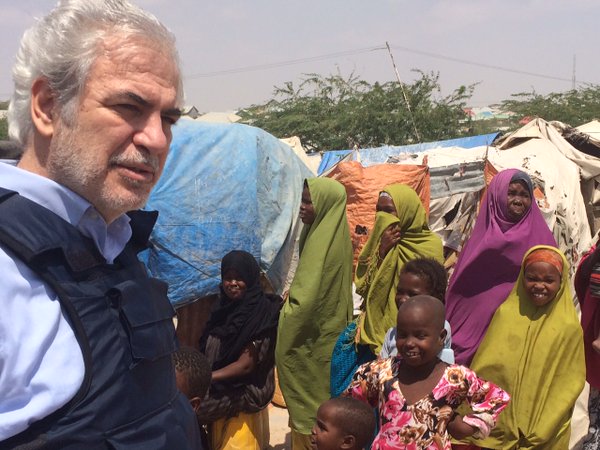EU announces €29m humanitarian support for Somalia

The European Union, EU Thursday announced €29 million humanitarian support for Somalia, a day after humanitarian agencies in Somalia launched a $885 million appeal for close to 5 million people facing hunger in the Horn of Africa nation.
EU Commissioner for Humanitarian Aid and Crisis Management, Christos Stylianides has said the funds will provide support in areas of food, health services, water, sanitation and hygiene, shelter, protection and education in emergencies.
“The EU will continue to ensure that humanitarian aid reaches the most vulnerable populations in Somalia. Despite the challenging security conditions for humanitarian workers to deliver aid, we cannot overlook long lasting and complex crises like that of Somalia,” said Stylianides.
The funds, which is part of the €77 million set aside for the Horn of Africa is in addition to El Niño related support of €79 million announced in December last year for the Greater Horn of Africa (Djibouti, Eritrea, Ethiopia, Kenya, Somalia, Sudan and Uganda).
Other countries set to benefit from the fund include Kenya which has been allocated €17 million euros, Ethiopia, €25 million, Uganda €5 million and Djibouti with the least, €500,000 euros.
Internally displaced persons
Somalia, which has an estimated 1.1 million people internally displaced is also facing further humanitarian crisis following the El Niño phenomenon which affected about 150,000 people late last year . Another 340,000 in the north of the country are in need of urgent assistance as a result of El Niño related drought.
The Horn of Africa region is home to 1.7 million people; more than half of this is Kenya’s Daadab and Kakuma camps.
The crisis in Yemen has also had an impact on the region. Over 30 000 people have entered Djibouti from Yemen, and nearly 30 000 more, a majority of whom are returning Somalis, who have left Yemen for Somalia.
The EU noted this upsurge of refuges is putting additional strain on those countries, which have an extremely low capacity to absorb the large influx of refugees and/or returnees.